INTRODUCE
Natural disasters occur basically everywhere on earth, so it’s important to know how to talk about them.

PRESENT
STEP A EXPRESSIONS
I. Go over the expressions with your tutor.
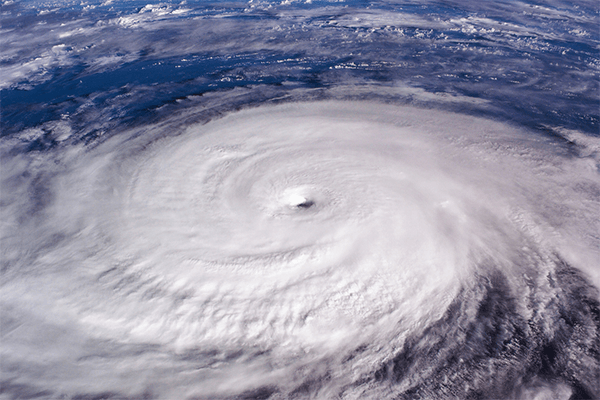
1. Hurricane/typhoon season refers to a period of time each year when there are frequent hurricanes/typhoons in a particular place.
Typhoon season in the Pacific is usually between May and October.

2. When something is heading straight for somewhere, it is going to directly hit a place.
Oh, no! The tornado is heading straight for the city!
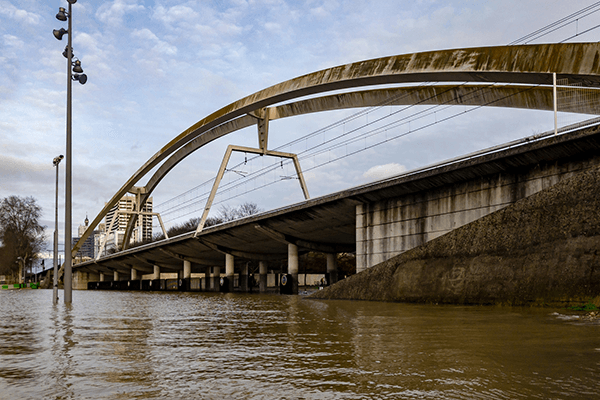
3. An event can be called devastating if it is very destructive.
My hometown suffered some devastating flash floods last year. Half the town was underwater.
II. Tell a story using the photos below and the expressions.
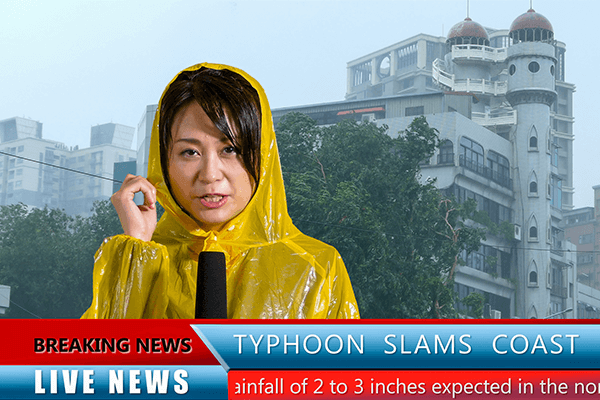
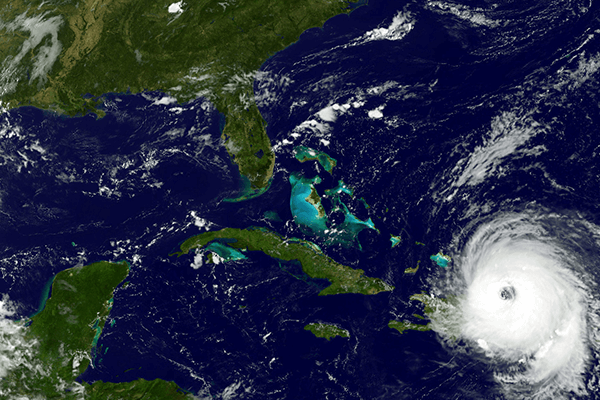
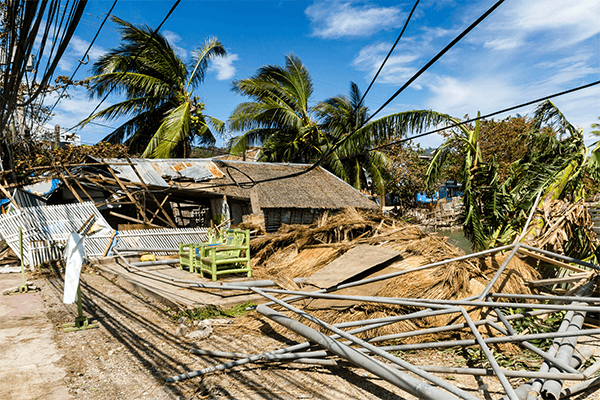
STEP B PRONUNCIATION
| Phrase | Example |
|---|---|
the city / thuh sit-ee / |
It’s heading straight for / thuh sit-ee /! |
the airport / thee air-pawrt / |
Now it’s heading straight for / thee air-pawrt /! |
UNDERSTAND
SPEAKING
Toru and his wife Holly are watching the news while on their honeymoon in Mexico.
 |
- Holly:
Do you still want to go to Frog Alley later?
- Toru:
Of course! We’re only here for a few more days. I’d like to take home a souvenir from our first trip together as husband and wife.
- Holly:
That’s sweet, but it’s raining hard. It might be a hassle to leave the hotel. Besides, the news anchor said that Hurricane Francisco is heading straight for this area.
- Toru:
Well, even if it does flood, we’re going to be fine. I’m an excellent swimmer.
- Holly:
Oh, Toru! Are you being serious right now?
- Toru:
(laughs) I’m kidding. I’m just trying to calm you down. Don’t worry too much. I bet the hurricane will change course. They never really know where hurricanes will end up. The rain will eventually stop, and then we can go out and sightsee.
- Holly:
I don’t think you’re taking this seriously enough. When it’s hurricane season here in Mexico, the damage is usually extensive. Even if the hurricane doesn’t hit this area directly, we’ll still be affected. There was a devastating flood here last year when Hurricane Emily passed by.
- Toru:
Relax, Holly. It’s not going to be as bad as that. Let’s just wait and see if the weather gets better or worse. If it gets worse, then we’ll remain at the hotel. Okay?
TRIVIA
While typhoons in Japan are referred to by number, many other countries refer to them by name. Hurricane names go in alphabetical order and switch between male and female names. Typhoon names are chosen from a list of words contributed by a number of countries including Japan. Here are some examples:
- Hurricane Alberto, Hurricane Beryl, Hurricane Chris, Hurricane Debby
- Typhoon Maliksi, Typhoon Usagi, Typhoon Jelawat, Typhoon Mulan
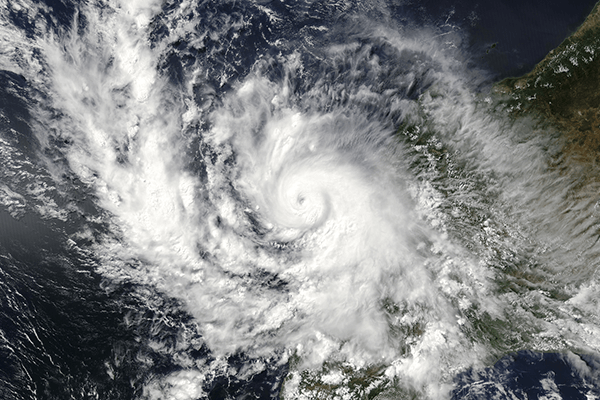
PRACTICE
STEP A EXERCISE
Answer the questions using the pictures and expressions in the box. Some expressions may be used more than once, and the form of some expressions may need to be changed.
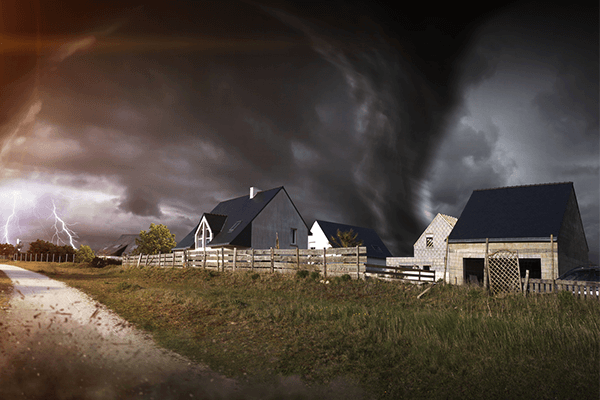
1.
Tutor: Why did the people have to be evacuated?
Student: __________, so they had to leave as quickly as possible.
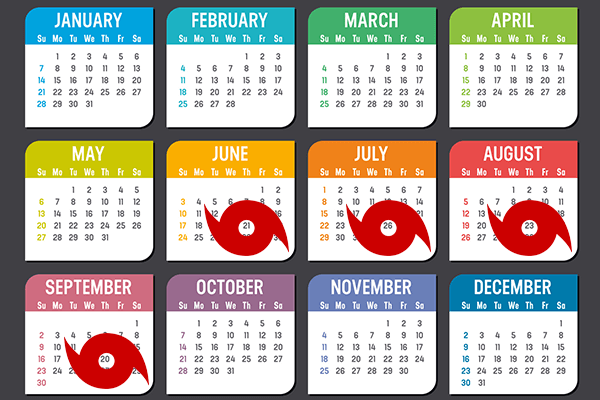
2.
Tutor: Why are there so many typhoons recently?
Student: Are you serious? _____________!
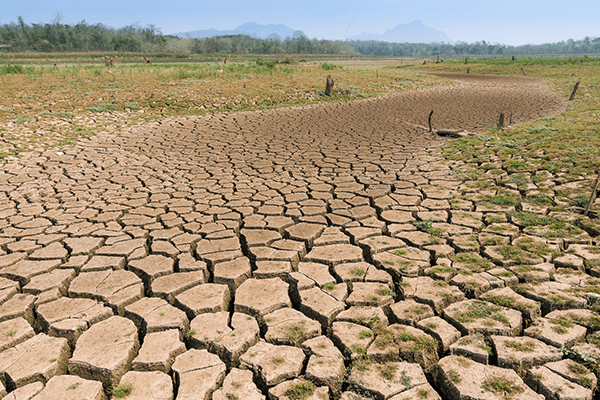
3.
Tutor: Was the drought really that bad?
Student: Yes. Many farmers lost their whole harvest! __________.
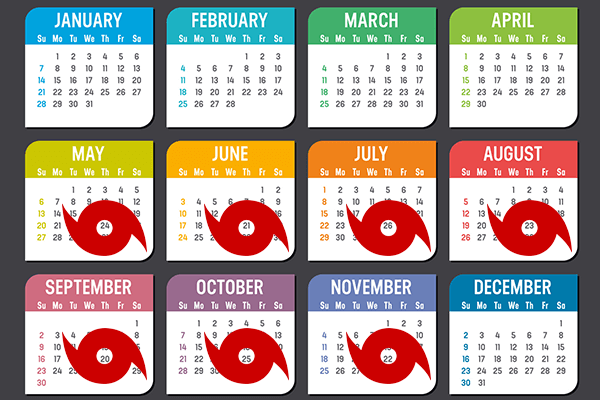
4.
Tutor: Do you know when hurricanes usually happen here in Mexico?
Student: __________.

5.
Tutor: What’s wrong?
Student: Look out! _________!
STEP B EXERCISE
Follow the instructions in parentheses using the expressions in the box. The form of some expressions may need to be changed.
1.
Tutor: Wow, you went on a vacation in the Caribbean? Nice! How was the weather?
Student: (Say that the weather was bad because it was the time of the year when there are frequent hurricanes.)
2.
Tutor: Do you see those dark clouds?
Student: (Say yes, then explain that you’re worried because they’re moving towards your house and you have laundry outside.)
3.
Tutor: Hey, I heard you were in Puerto Rico when that storm hit. Was it really that big?
Student: (Say yes and explain that it caused a lot of damage.)

CHALLENGE
Challenge 1
You and your friend are staying at a hotel that is experiencing a power outage due to a hurricane. Talk about the power outage and natural disasters in general with your friend.
Today's Expressions
- hurricane/typhoon season
- head straight for somewhere
- devastating
 |
Challenge 2
Discuss your ideas.
 If Time
If TimeAllows
1 NATURAL DISASTERS |
2 DEVASTATING THINGS |
3 TYPHOON SEASON |
|---|---|---|
|
1 NATURAL DISASTERS
|
2DEVASTATING THINGS
|
3TYPHOON SEASON
|
FEEDBACK
I can talk about natural disasters.
LESSON GOAL ACHIEVEMENT
-
4
Very GoodCould complete the task with ease
-
3
GoodCould complete the task with some clarifications
-
2
FairCould complete the task with additional instructions
-
1
PoorCould somehow complete the task with difficulty
PERSONALIZED FEEDBACK
- RANGE
the ability to use a wide variety of vocabulary - ACCURACY
the ability to speak correctly - FLUENCY
the ability to speak smoothly without pauses or fillers - INTERACTION
the ability to manage a conversation

